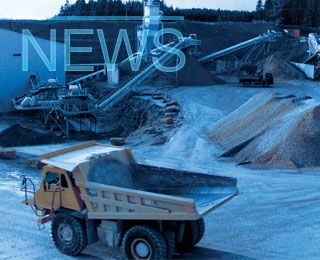The planned merger between Lafarge and Tarmac has been called into question by the UK’s Competition Commission (CC) on grounds that the tie-up could damage competition in both the bulk cement and other construction materials markets.
In February 2011, Lafarge and Tarmac announced their agreement to combine their cement, aggregates, ready-mixed concrete, asphalt and contracting businesses in the United Kingdom, comprising Tarmac Limited and Lafarge Cement UK, Lafarge Aggregates and Concrete UK (Lafarge UK). The transaction will form a 50:50 joint venture and will create a leading UK construction materials company. The combined sales of these two businesses in 2010 amounted to UK£1.8bn (US$2.8bn), with combined EBITDA of UK£210m (US$323m).
The move had been expected to face regulatory action from the outset and even though both companies offered to divest a variety of assets, in September last year the UK’s Office of Fair Trading referred the deal to the CC.
From its provisional findings, Roger Witcomb, chairman of the commission’s Anglo-Lafarge inquiry group, said: “We have a number of concerns about this joint venture.”
The CC notes that in bulk cement, there are currently only four UK producers, and there is evidence that the market is not as competitive as it could be. “Prices and profit margins haven’t been affected in the way we would have expected following the big falls in the demand for cement in the past few years. We have not reached a view on whether or not there has been coordination in the bulk cement market. But we are concerned that the proposed tie-up would increase the susceptibility of this market to coordination,” it said in a statement.
Some of the reasons for this arise from the proposed combination of the cement businesses and some from the increased vertical integration that would result from the combination of their ready mix businesses. Lafarge currently has a relatively small ready mix business, while Tarmac has a relatively large one.
The Commission says the tie-up could reduce competition for two specific products: rail ballast and high purity limestone because of the shortage of alternative suppliers.
It notes that this is a particularly complex investigation because of the number of "different products, the varying degrees of substitutability between them, and the fact that cement is an input into ready mix and aggregates are an input into both ready mix and asphalt. In addition, for aggregates used in general construction applications markets are quite localized as a result of high transport costs compared with product value." The CC highlight that the markets for asphalt and ready mix are also localised, but for them the issue is perishability. “We have therefore had to examine competitive conditions in a large number of local markets for these products in coming to our view on the likely effect of the proposed joint venture on competition,” it said.
The independent public body is now consulting on the possible actions it could take in response to the reductions in competition it has found, bearing in mind the close linkes that exist between the different product markets.
As well as the summary of provisional findings, the CC has published a notice of possible remedies, outlining ways that the potential anti-competitive effects of the joint venture could be prevented. The full provisional findings report will be published shortly.
The commission invited comments on possible remedies by 6 March, and on its provisional findings by 13 March.
